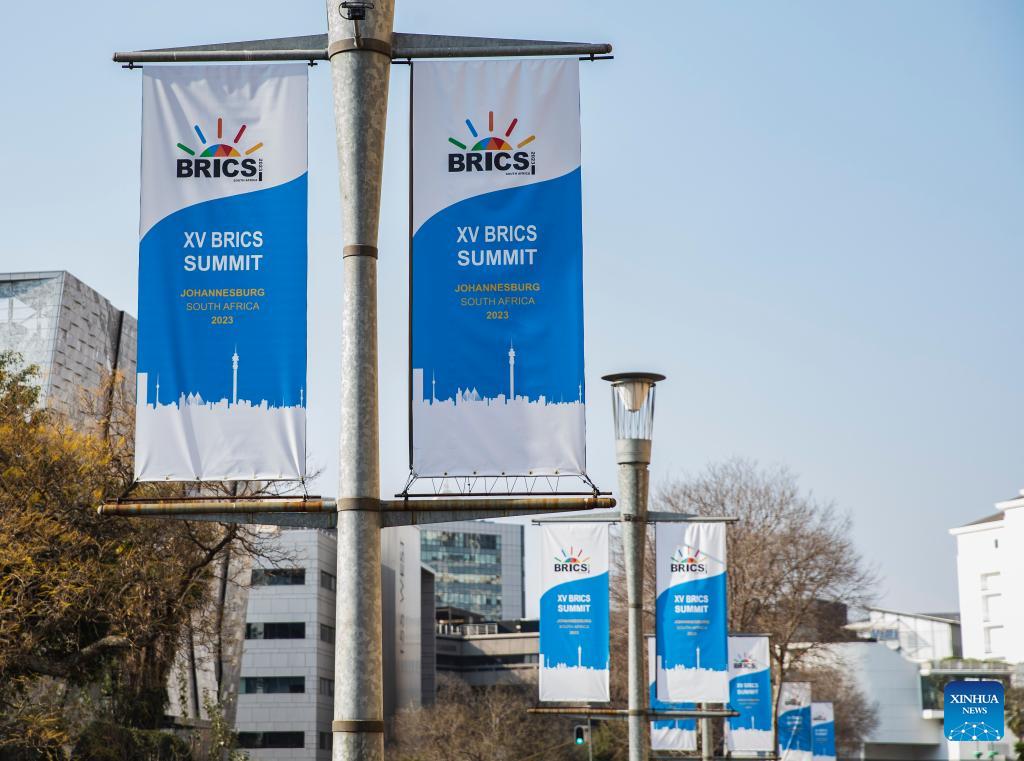
This photo taken on Aug 21, 2023 shows a view near the venue of the 15th BRICS Summit in Johannesburg, South Africa. The 15th BRICS Summit is scheduled to be held from Tuesday to Thursday in South Africa. [Photo/Xinhua]
This is an editorial from China Daily.
Acting on the group's spirit of openness, inclusiveness and win-win cooperation, the members of BRICS are taking the opportunity of their first offline summit in more than three years to build consensuses on important development issues and discuss a potential expansion of the group that will further boost its global influence.
Seventeen years on from its inception, BRICS is being increasingly looked upon to be a voice of the developing world, a locomotive for the development of the Global South and a promoter of a fairer international order. With a combined population of over 3.2 billion people, the bloc accounts for some 40 percent of the world's population, one-fourth of the global GDP and 17 percent of world trade. As President Xi Jinping rightly pointed out, it is an essential driving force for global growth and democratic international relations.
Today, more than 40 countries, including Iran, Saudi Arabia, Argentina and Bangladesh, are knocking on the door of BRICS, highlighting the mechanism's vitality and appeal. The formation of a "BRICS Plus" would create a more inclusive and representative platform for cooperation and collaboration among countries of the Global South, enhancing their collective bargaining power, increasing global economic integration and more effectively promoting a multipolar world order.
While achieving meaningful cooperation and consensuses among a larger group may be challenging, those skeptical that an enlarged BRICS is feasible underestimate the willingness and ability of the member countries, as well as prospective newcomers, to navigate their differences and find common ground on important issues. By ensuring that the benefits of membership are felt by all members and playing an effective role in shaping fairer global governance, BRICS can prove its worth as an inclusive and representative platform for cooperation and collaboration.
China stands ready to work with its fellow BRICS partners to welcome future new members so that an enlarged group can play a greater role in global governance and contribute to building a truly democratic, fair and just world.
Given the undoubted attractiveness of BRICS, its potential enlargement is perceived by the West as being an intended counterforce. But the formation of "BRICS Plus" is not intended as a challenge to the West. It is the group's adherence to openness and inclusiveness that makes it an attractive alternative to the Western-dominated groupings that are either exclusively self-serving or have been hijacked by Cold War thinking.
As Xi said, rather than asking countries to take sides or creating bloc confrontation, the BRICS countries, and those hoping to join them, are seeking to make the group an architect for peace and development. BRICS is not a challenge to the Western-led order, it is part of the evolution toward a holistic global order.

 中文
中文



